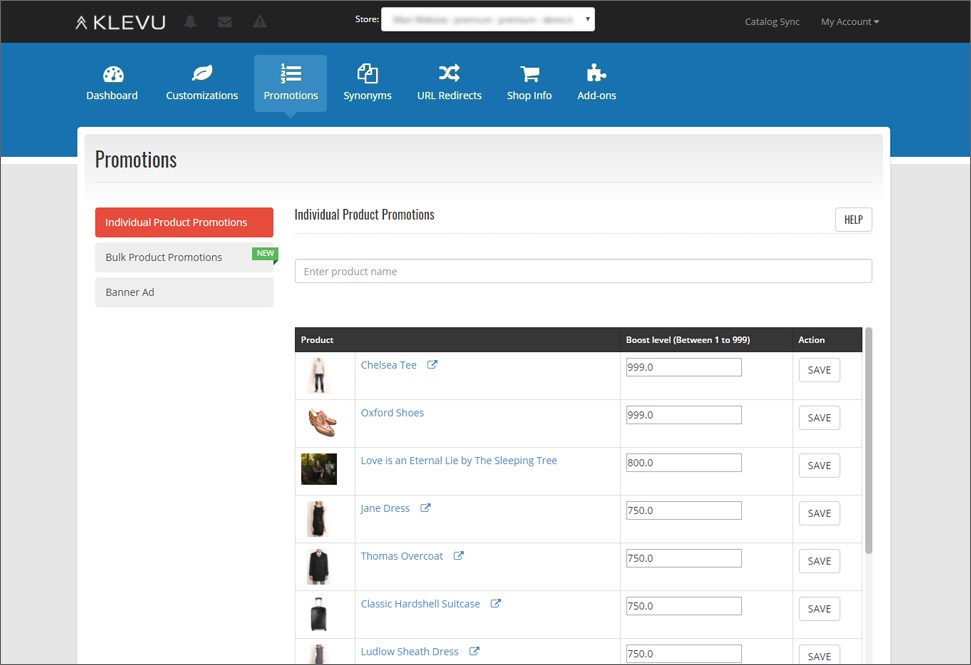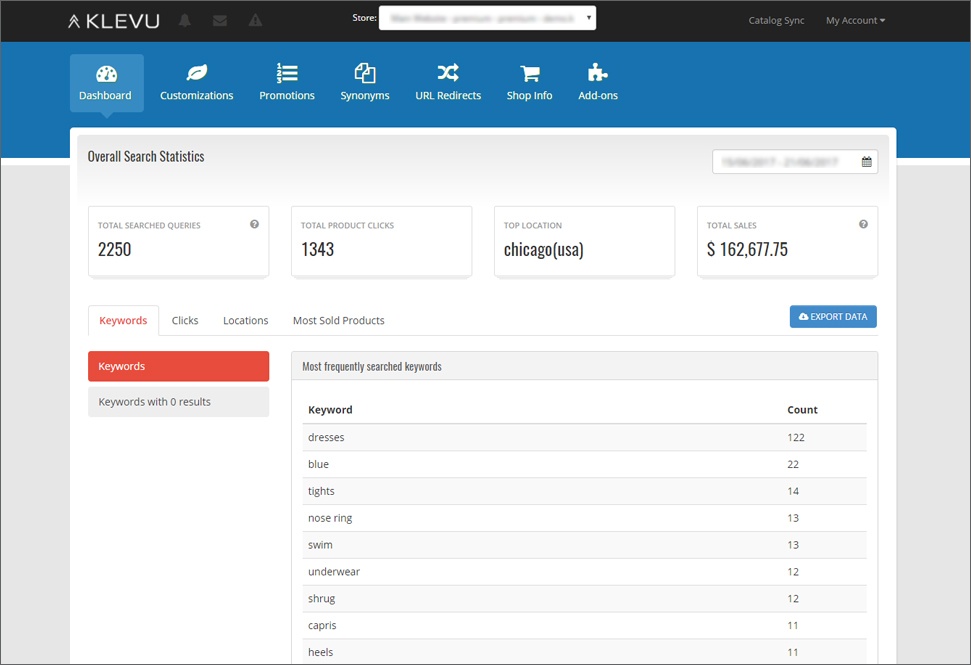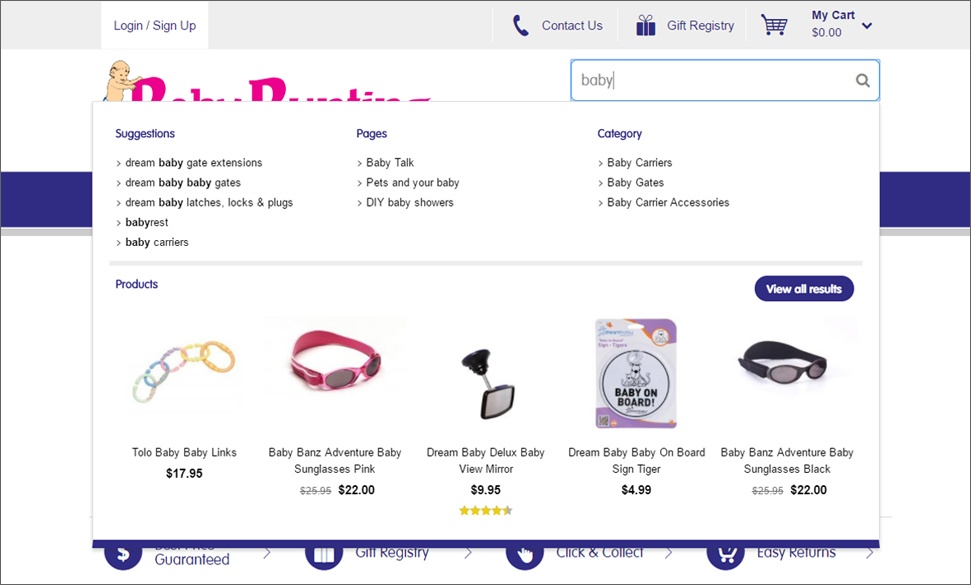Blog
Responding to Google Search Appliance (GSA)’s end of life
Last year, Google announced that they were going to be deprecating their premium site search solution (Google Search Appliance or Google Enterprise Search as it’s also known), which powers on-site search engines for a host of mid-level and enterprise-level eCommerce stores, globally. Google had previously discontinued the non-enterprise version back in 2012 and now they’re said to want to focus more on their cloud offerings outside of search.
Google have said that Google Search Appliance customers are able to transition over to their custom search solution and use the service for free, although Google will serve ads to the end user as part of the experience (I’d imagine very few merchants will go with this option).
It’s worth noting that Google Search Appliance had a lot of pitfalls, particularly with how it captured data (via crawling a store) and it’s limited features around changing the front-end UI. Merchandising capabilities and the search results page itself were also very basic, which is why there aren’t many customers left using the platform.
Now, as we move closer to this end of life date (April 2018 – with renewals no longer available), eCommerce professionals are faced with a difficult decision around how they continue to maintain their search experience without disrupting the experience for their customers. The options, in my opinion, for these eCommerce teams are:
- Move to using the out of the box search solution from their eCommerce platform (if applicable) – most platforms out there have fairly weak search OOTB (especially the mainstream ones)
- Build something internally – this is likely to come with a considerably higher TCO (total cost of ownership) and it’s unlikely to yield the same results
- Use a premium search solution – this is likely to be the most common route taken.
I would say that the majority of retailers will opt to move to a new third party solution, as the costs in most instances will be comparable to Google Search Appliance and this actually represents an opportunity to drive improvements in the quality of results and the experience. The only real frustration will likely be the integration, as integrating a new technology will require development resource, which is often hard to free up.
The next stage of this article will be focused on what these merchants should be looking to consider in a new solution.
Complexity of integration
As touched on above, the most frustrating aspect of moving to a new solution is likely to be the development overhead – however, a number of the solutions out there will have lower integration times and the company can take on more of the work. Klevu, for example, requires very little development as we’d generally either integrate directly with Magento or Shopify Plus, or we’d simply require a product feed and for our JavaScript tags to be added to your store for bespoke systems or other platforms.
This is something that should definitely be considered, alongside what the companies are then doing with the data.
Merchandising capabilities & product boosting
Something that a lot of people may not consider is that your current search solution will have a lot of existing information around how you want your search results to be ordered, which will need to be re-created via the new solution. With this in mind, it’s vital that an alternative solution allows the user to quickly and easily create rules to for promoting specific products and groups of products.

For example, promoting your most popular items, highest margin items, top-brand items, own-brand items etc may be an important requirement – this will be considerably easier if you’re able to define rules based on your product attributes / data. The same principle applies for boosting specific products – which is likely to be a big part of a merchandising strategy.
Reporting
Another thing you should look at when you’re selecting your new search technology is the data that’s going to be made available to you. The queries that people are using and what they’re going on to purchase is invaluable for merchandising teams and there’s also lots of data points for you to respond to and use in order to optimise the results you’re serving. As a minimum, I’d suggest looking to select a platform that provides the following:
- Entry-level search data (e.g. number of searches, the actual queries, 0 result searches etc)
- Query-level order data (revenue, orders etc)
- Product-level order data (revenue, orders etc)
- Geographic data
- Which products are purchased (and which queries have driven those sales)
- Device reporting

Ultimately I’d suggest using Google Analytics to analyse the more granular search data, but a good third party solution should be able to report on the areas listed above.
Custom error messaging
Providing custom error messaging is something that lots of merchants don’t both with, but it represents a good opportunity to try and keep users on track when they’re faced with a 0-results page / experience. Klevu allows merchants to display a custom message and promote their top selling items.
Content search
Content search is becoming more and more important for retailers – in order to provide results for things like delivery information or direct users to buying guides etc. Klevu can serve content via search, be it via the platform or a different platform (e.g. your Wordpress blog). Examples of types of content that retailers would generally want to serve includes buying guides, more detailed product information, delivery information, account links, news etc.

Machine learning
Arguably our biggest selling point (in addition to the NLP side of things) is our machine learning capabilities, which is essentially focused on automatically boosting items based on how users are interacting with them. So if a product is generating a high level of clicks, add-to-carts or orders, Klevu will automatically boost the item in real-time. This is something that can help to drive a lot of extra revenue and it’s something that more and more retailers are looking for as standard.
If you would like to discuss moving from Google Search Appliance, please get in touch and we’d be happy to run you through the process and setup an extended trial of Klevu for you.


